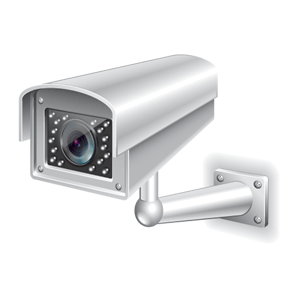County judge spots moving courtroom camera, finds sheriff zooming in on defense papers

Image from Shutterstock.
A judge was alarmed Friday when a camera above the jury box in a San Juan County, Washington, courtroom began panning, tilting and zooming in on the jury box and counsel tables.
Superior Court Judge Kathryn Loring noticed the movement of the normally stationary camera from a computer monitor near the court administrator’s desk and notified retired Judge Donald Eaton, who was acting as a temporary district court judge and hearing a case in the courtroom at the time, according to the Seattle Times, the Hill and the San Juan Islander.
San Juan County Sheriff Ron Krebs admitted to manipulating the camera from the sheriff’s dispatch office, and according to court filings procured by the Seattle Times, he insisted that the incident was isolated and unintentional but resulted from security concerns about the defendant in the case.
Lopez Island resident Dustin Schible was on trial for charges of fourth-degree assault, harassment and first-degree criminal trespass, according to the San Juan Islander.
After the misconduct was revealed, the Seattle Times said Eaton informed Colleen Kenimond, the San Juan County public defender who was representing Schible, and Randall Gaylord, the San Juan County prosecutor. Eaton reviewed the video, sequestered the jury and began a hearing on the matter, which included testimony from Loring, Krebs and the county’s technology expert.
Eaton dismissed the charges against Schible after the hearing, citing government misconduct that violated his right to a fair trial. According to the Seattle Times, screenshots from the video that “show close-ups of a trial exhibit, a steno book belonging to the No. 3 juror in the case, and a legal pad belonging to Kenimond were introduced as evidence at the hearing and played into Eaton’s decision to dismiss the charges.”
Krebs said in a sworn declaration that he “inadvertently manipulated the camera in the district courtroom in such a way that it zoomed in on one or more locations in the courtroom” and said he didn’t read or share anything he might have seen, according to the Seattle Times. He also claimed he didn’t realize the camera could zoom.
Eaton sealed video from the surveillance camera but scheduled a hearing Feb. 12 to determine whether to release it publicly.
Local civil rights lawyer Nick Power is pushing to make the courtroom video public, and according to court filings, he argues that the misconduct raises several issues, including why the camera has a zoom function and whether the camera can be controlled by other county agencies, the Seattle Times said.



